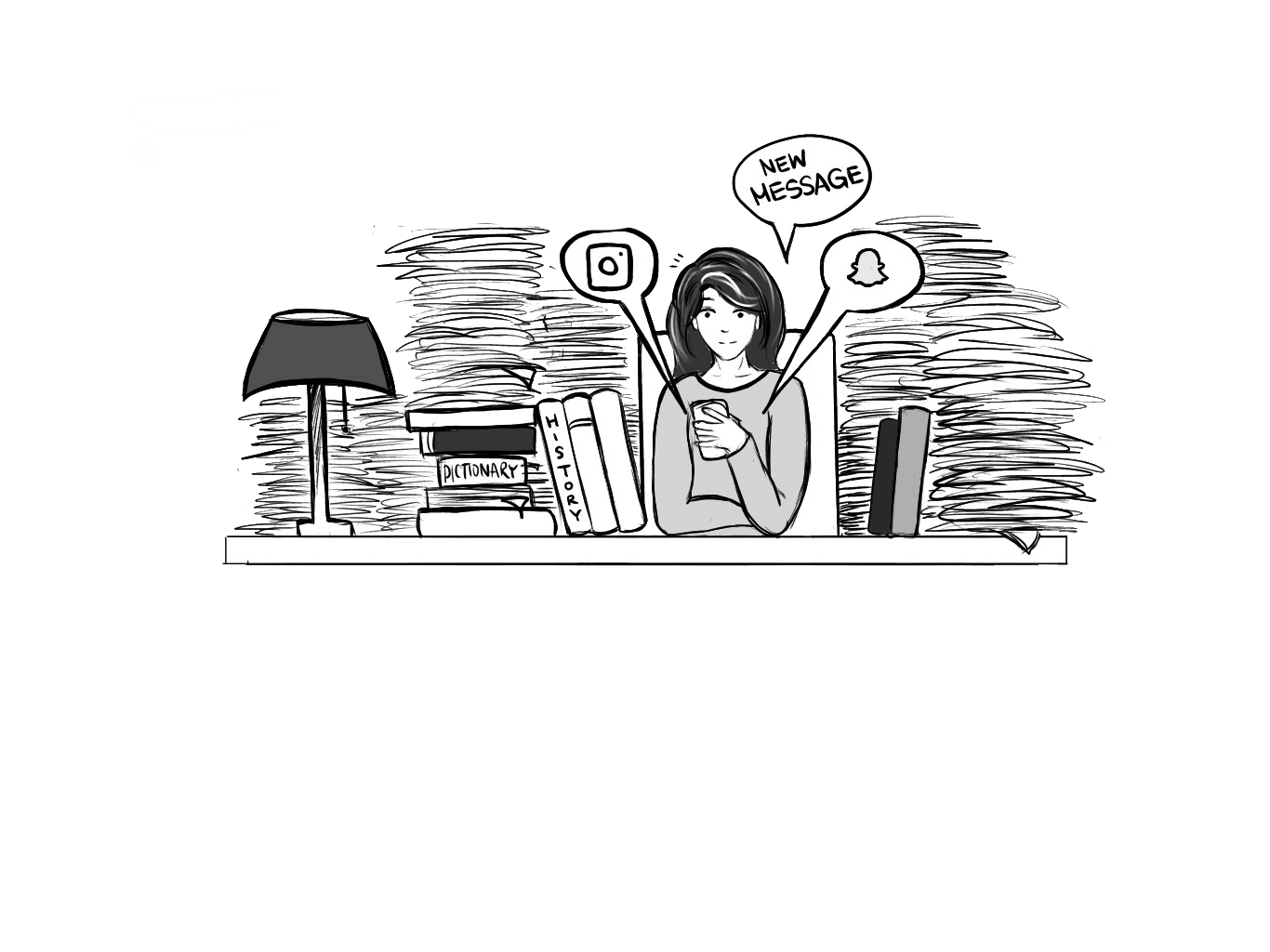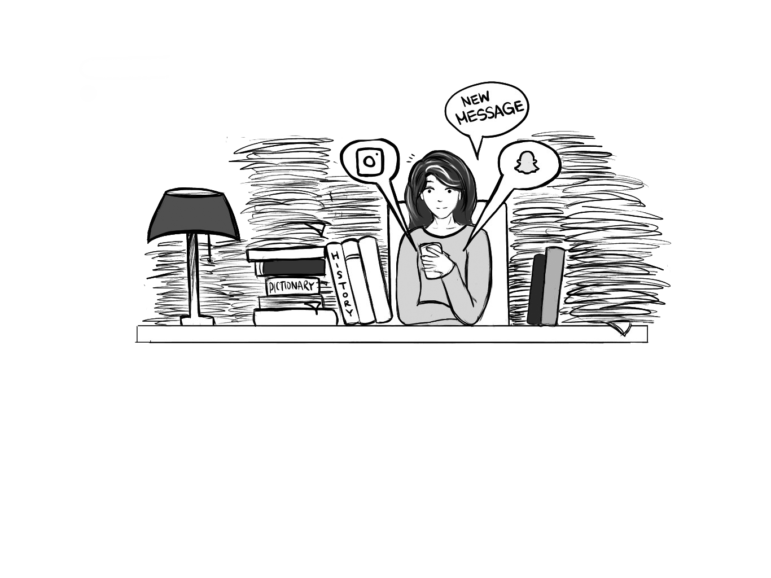

After hours of staring at his phone and scrolling through Instagram and Snapchat, a student finds his eyes wandering to the time at the top of his phone screen. It reads 1 a.m. A flood of panic rushes through his mind as he remembers the multitude of tests he has tomorrow and has yet to study for.
This is a common scenario students find themselves in daily. Research done by StudyMode, an online student study tool, surveyed 1,300 high school and college students, and found that 87 percent of high school students are self-proclaimed procrastinators. High school students procrastinate on everything from a math worksheet, to cramming for finals, to putting off a project until the night before it is due.
Not only are the results of procrastination unpleasant, they are also unhealthy. Chronic procrastination can lead to heart disease and hypertension later on in life. On a smaller and more tangible scale, daily procrastination leads to stress and sleep deprivation.
“I think breaking sleep patterns is one of the least talked about, but most dangerous things teenagers do to themselves regularly,” said Psychology teacher Carlo Corti. “Sleep is so important to good health, normal functioning, normal ability to just pay attention to things. When they procrastinate, that is sacrificed, that’s a big deal.”
Whether high school students or working adults, procrastination is a common, yet unfavorable characteristic. It can cause anxiety and high stress levels as one realizes that there isn’t enough time to get certain things done, wishing they could turn back time. Students may feel that they are unable to complete an assignment and sometimes simply give up on it.Procrastination affects sophomore Denise Rios-Jordan in more ways than one.
“It stresses me out a lot, and I have anxiety so it boosts that up more,” she said.
Procrastinating on undesirable assignments and doing other, more enjoyable activities simply feels better.
As the YouTube channel AsapScience explains, “Every time something enjoyable happens, you get a dose of dopamine, which modifies the neurons in your brain, making you more likely to repeat this behavior.”
The brain essentially grows accustomed to the pleasant feelings associated with procrastinating which makes the habit that much harder to get rid of. Procrastination can stem from a student feeling overwhelmed and anxious and therefore attempting to avoid the assignment for as long as possible which will in turn lead to even more stress and desire to give up. Sophomore Shirleen Fang tries to avoid this feeling as much as possible.
“Some people say that procrastination makes them finish their homework better or more efficiently, but I just don’t like to stress,” she said. “So, by getting [my homework] over with earlier, even if it’s not due until next week, I can feel less stressed.”
Some say that laziness is a byproduct of procrastination. Some say lack of motivation, having too many distractions or lack of time management skills lead to procrastination. All these factors may contribute to procrastination. Junior Eric Cheon is not afraid to admit his reason for procrastinating.
“I procrastinate because I’m tired, really lazy and unwilling to do my work,” he said.
It is not hard to see that many students today are challenged with many distractions such as constant connections through social media which decrease their ability to focus and compete with their academics. In such an environment, having motivation to tackle school projects or studying for tests in a timely manner can be more difficult.
“When I get home and I go straight to my room, because I have electronics, like my phone, right away I’ll procrastinate on my homework,” said freshman Camila Barsanti.
Barsanti, Rios-Jordan and Cheon all say that they gain nothing positive from procrastinating. So why do people continue to procrastinate? Corti presents the idea that students have not faced severe consequences and therefore continue to procrastinate.
“I don’t think there are students out there who are procrastinating because they failed … the reason they do it is because it works,” he said. “And that’s partially because they are most motivated to do it at that time. Maybe they feel like they do their best work at that time. Maybe they need the urgency to do it. Again, for long-term learning, I think it’s a really horrible way to study, but for short term success, like if you need to do well on that test tomorrow, procrastination has worked. And if it works and people are rewarded for it, they’re going to keep doing it. It’s a hard habit to break.”
Whatever the approach, it is clear there is a no easy way to fight procrastination and many students do not feel a need to because of how natural it now feels. Today’s students face many stressful factors at school as well as extracurriculars and a never ending supply of distractions. Learning to manage procrastination in the midst of all of this could lighten the stress and prevent other negative impacts, however, procrastination has become a such normal part of many student’s daily routines and is difficult to avoid or change.



